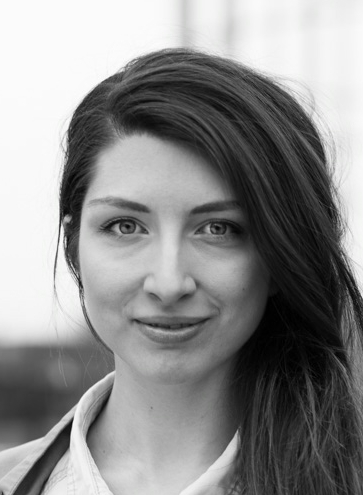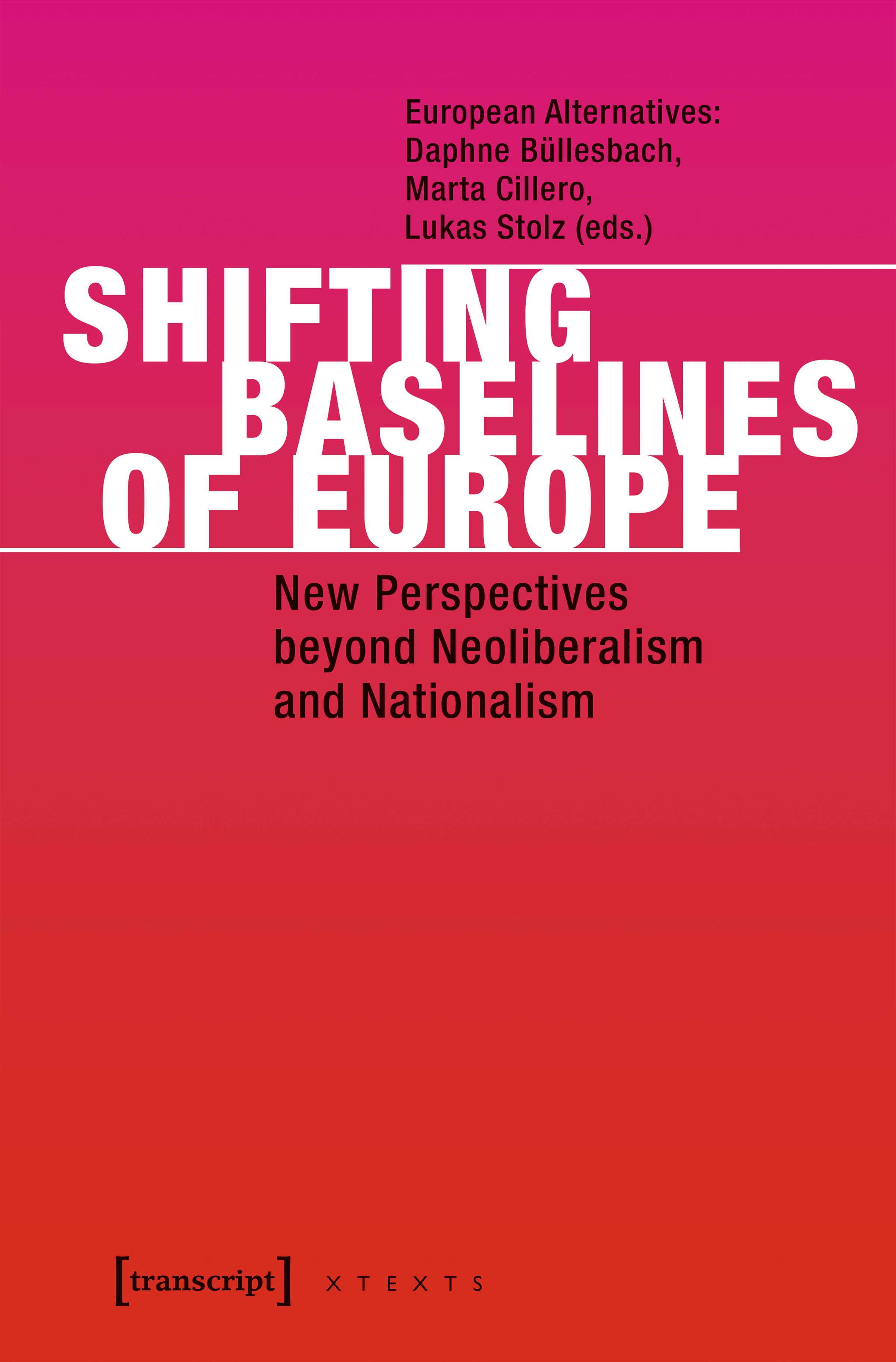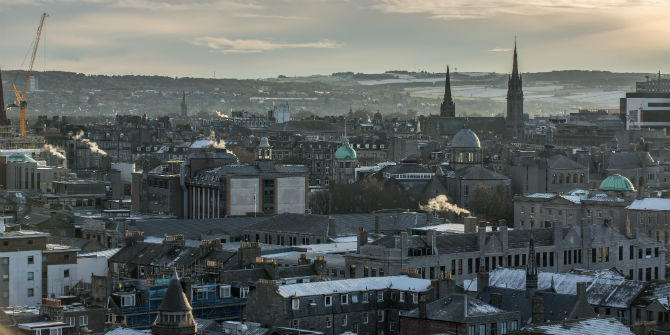 Shifting Baselines of Europe: New Perspectives beyond Neoliberalism and Nationalism, writes reviewer Antje Scharenberg, makes the case that alternative political models for Europe are already emerging. One of its most compelling empirical examples is a network of ‘rebel cities’ like Barcelona, Messina and Naples, which transform institutional politics through participatory democracy on the local level.
Shifting Baselines of Europe: New Perspectives beyond Neoliberalism and Nationalism, writes reviewer Antje Scharenberg, makes the case that alternative political models for Europe are already emerging. One of its most compelling empirical examples is a network of ‘rebel cities’ like Barcelona, Messina and Naples, which transform institutional politics through participatory democracy on the local level.
“The house of Europe,” wrote the German sociologist Ulrich Beck in 2013, “is empty of people.” Certainly in the UK, where Eurosceptic voices have been prominent in the mainstream media for years, these words might seem accurate. As the feminist philosopher Rosi Braidotti has written, one might even argue that we live today in a state of ‘post-European Union melancholia,’ which often coincides with a reinforcement of nationalist visions all across the European continent.

Against this melancholic backdrop, Shifting Baselines of Europe offers a hopeful account of European alternatives in the making. As Lorenzo Marsili remarks in his contribution, “melancholy and sadness are the first enemies to fight”. This collection rejects the false dichotomy between the European status quo and nationalism, and outlines compelling examples of alternative visions and practices. This is one of the book’s key strengths: rather than presenting its critique merely as a theoretical argument, it demonstrates how people across the continent are already, in Beck’s words, ‘doing Europe’ differently.
The book itself originated in a workshop in late 2016, in which the civil society organisation and movement European Alternatives brought together activists, artists, academics, journalists, writers, community organisers and councillors from all across and beyond the continent. By testing out and enacting alternative political ideas together, the participants themselves embodied how different European politics might look like. Some of the approaches explored in this process are now preserved in this volume.
Following an introductory section which contextualises the contributions within the general political climate and raises initial questions of how Europe might be imagined differently, the publication assembles case studies, essays and interviews under the three sections ‘cities’, ‘media’ and ‘alliances’. Contributions include a diversity of voices such as those of renowned academics, local activists and politicians, touching on a range of topics from civic participation, refugee politics and alternative economic models to issues of digital surveillance.
an alternative European project must reject Euro-centrism and reconstruct Europe not as a fortress, but as a refuge
Two elements of the book are worth highlighting in particular. The first is the underlying principle that an alternative European project must reject Euro-centrism and reconstruct Europe not as a fortress, but as a refuge – a place made inhabitable for all sorts of bodies and ideas. This open-minded outlook is illustrated by several case studies, including contributions on European ‘shelter cities’ as well as on the stateless democratic confederalism practiced in Syria’s Rojava. It is perhaps quite telling that the very last words of the book belong to Salih Muslim, the Co-Chair of the Kurdish Democratic Union Party, whose “struggle for humanity” might indeed serve as a useful inspiration for a renewed European project.
Secondly, the book argues that an alternative Europe should not only transcend national and conceptual borders but also establish connections across them. Several chapters demonstrate how such connections might come into being, for instance through alternative media practices, via collaborations of activists and social movements across Europe, or by linking up participatory municipal politics on a transnational level. The latter is perhaps best exemplified by the network of so-called ‘rebel cities’ like Barcelona, Messina and Naples, which transform institutional politics through participatory democracy on a local level. These examples demonstrate how an alternative Europe could be rebuilt both from outside of institutions and with the use of existing institutional tools.
Lastly, it is worth clarifying that while the volume does offer many inspiring approaches for possible solutions to contemporary issues in Europe, it does not provide polished policy proposals or a comprehensive blueprint for European institutional governance. However, those interested in fresh perspectives and innovative ways of thinking (and doing) ‘Europe’, from which policy recommendations could be drawn, will find it a valuable contribution to the otherwise sometimes dry and institutionally focussed discourse on European politics.
In sum, what is particularly convincing about the theme of this publication is that it releases the reader from a dichotomous discursive straightjacket. Instead of reproducing the binary discourse of being ‘for’ or ‘against’, respectively ‘in’ our ‘out’ of ‘Europe’, it opens up alternative spaces and pathways for more creative political practices.
The house of Europe, to answer Ulrich Beck, is far from empty. It cannot, however, be merely built by the institutional bodies in Brussels. The house of Europe is under reconstruction – renovated and inhabited by people from all across and beyond the continent. This is the main message of the book.
This post represents the views of the author and not those of the Brexit blog, nor the LSE. The book is available here. Featured image credit.
Antje Scharenberg is a PhD student at Goldsmiths, University of London. Her research is an ethnographic investigation of the politics of contemporary pro-European activism from a media and cultural studies point of view, carried out in collaboration with actors from civil society. European Alternatives is one of the collaborating partner organisations.







I have only one question for all you EU lovers: Do you want Europe to be become a gigantic Islamic State? That is what the EU is doing, whether you can see it or not. Many of us know about the Coudenhove-Kalergi Plan and all those who have received it’s annual prize – EU fanatics, everyone. It really doesn’t take much brainpower to join up the dots. White Europeans will be outbred within a couple of generations. Ergo, you must all be complicit – but why?.
Firstly, I have not read the book, but if we read the above synopsis, some of us will already be wary as well as weary due to the ease by which the authors appear to be selling other peoples countries, or perhaps simply giving the countries of Europe to the refugees from outside of Europe. Maybe I have misunderstood. Are the citizens in the European countries perhaps themselves refugees? Are the authors offering their own properties to house refugees and hoping other home- and landowners to do the same? If Europe is going to be a refuge, who will be the refugees? Who will pay to house these refugees? And so on. Is it possible that if these suggestions come to pass, politicians, bureaucrats and the well-connected will not be suffering financially nor be giving up any part of their pensions and superannuation? It’s so easy to come up with worthy plans which it is expected that the citizens of the European countries who are not part of the Establishment will pay for.